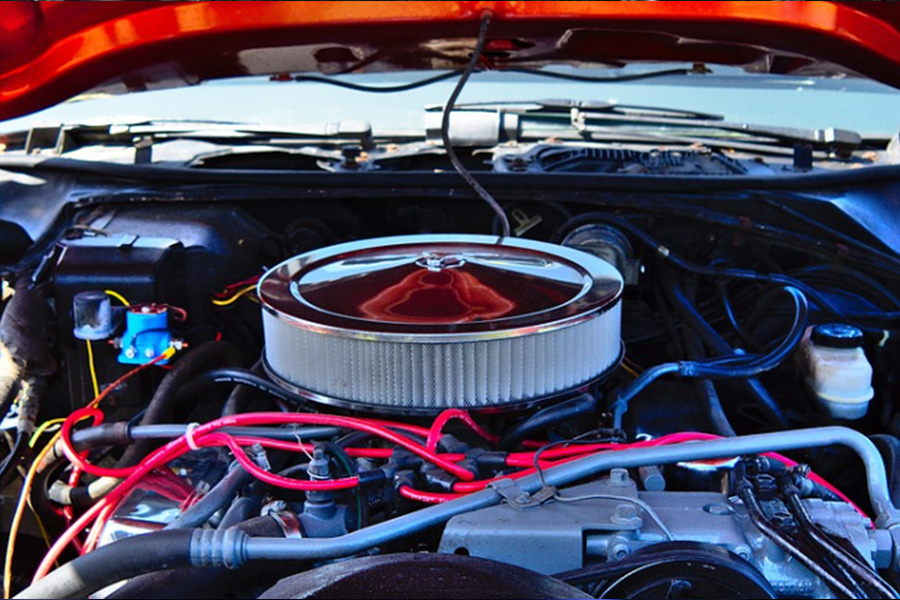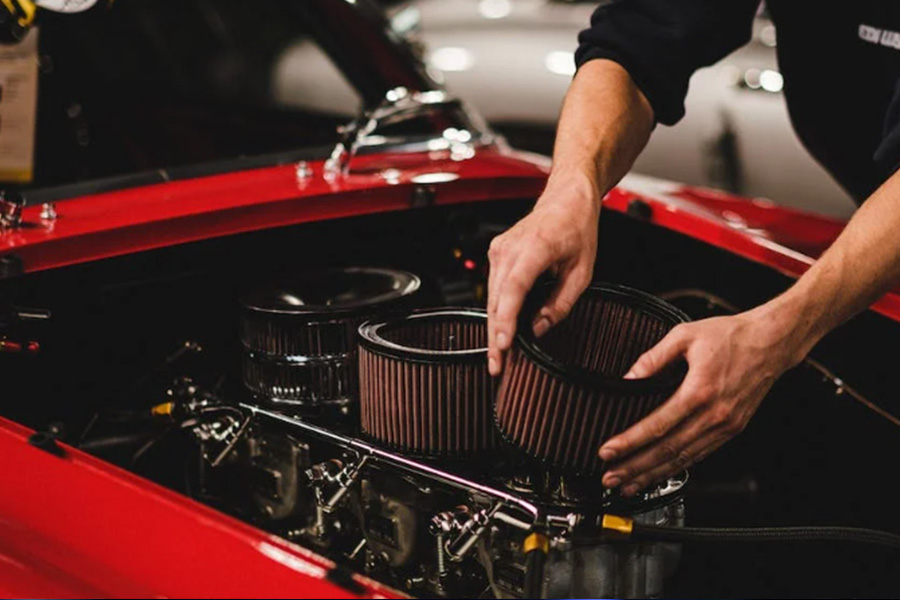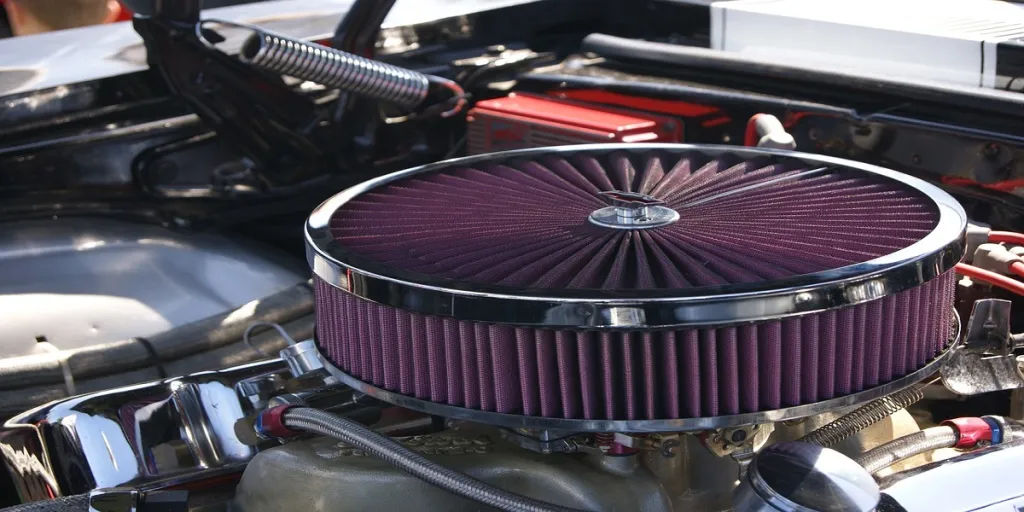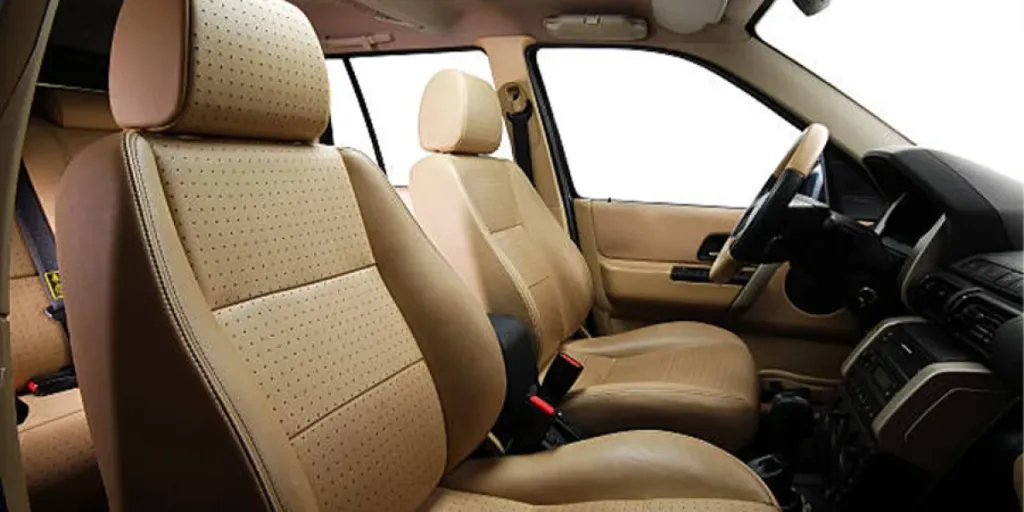The first line of defense for an automobile’s engine is the air filter. Air filters must be changed at least once yearly since dirty ones destroy catalytic converters and diminish fuel economy. The new air filter allows the vehicle to get cleaner air, a key component in the combustion process. Additionally, it prevents airborne contaminants such as dirt, dust, and leaves from getting pulled into the car’s engine.
Table of Contents
The business potential of air filters
Why are air filters important for car engines?
How to change car air filters?
Features of air filters
Conclusion
The business potential of air filters
In 2019, North America accounted for 33.8% of the worldwide market for air filters, making it the largest region in the world. Asia Pacific, Western Europe, and other areas were placed after it. The Middle East and Eastern Europe will expand at CAGRs of 16.7% and 14.9%, respectively, from 2019 to 2023, making them the two fastest-growing areas in the air purifiers market. According to estimates, the U.S. air purifier industry will be worth US$ 3.7 billion in 2022 and US$ 6.7 billion by the end of 2032.
Why are air filters important for car engines?
Choosing the best car air filters is a very important task. These products are meant to protect the engine from contaminants. So the engine runs best when the air filter is clean and working correctly.

Increased fuel efficiency
The best way to improve a car’s fuel efficiency is by upgrading its stock air filter with an aftermarket unit. Letting the engine breathe better and create more power can decrease the accumulated dirt and dust in front of the engine, making the vehicle more fuel-efficient.
The most significant advantage of an improved air filter is increased fuel economy. Improved gas mileage often relies on several variables, but as a general rule, it increases fuel economy by roughly 1%. In addition to saving money on petrol, it will improve cabin air quality and make the vehicle more eco-friendly.
Prolonged engine life
The car’s engine, transmission, and other components might suffer harm from clogged air filters. This reduces fuel economy and adds strain on the engine, which in turn can decrease horsepower. Though a dirty filter does not directly cause wear and tear, it does indirectly affect it by restricting airflow, overheating engine parts, and leading to other problems.
A good air filter will improve performance and fuel efficiency by reducing internal drag, which means less engine wear and damage. In other words, a clean air filter can extend the vehicle’s life by reducing strain on critical parts.
Reduced emissions
Car air filters are designed to collect particulate matter and other airborne pollutants from the air entering the car’s engine. Air filters are designed to prevent pollution from reaching the engine to allow it to get emission levels in line with national regulations. This translates into better fuel efficiency and reduced emissions while also extending the life of engine components.
How to change car air filters?
Changing the air filter for the car is not a difficult task, but it does require having the right tools and being able to access the air cleaner in the car. It is important to change the car air filter every several thousand miles, so that clean air blows into the car through the vents. Dirty air filters can clog up and make it hard for the engine to breathe correctly.

Buy an air filter
The first step that needs to be done is to buy a new car air filter. The process of buying a new car air filter is not something that you rush into. Instead, it is something that should take time over so you can find a model that best suits the car’s needs. The right filter will keep the engine clean, making it run more smoothly and efficiently.
Open the hood and locate the air filter box
Find the air filter box under the hood near the front of the car. The box might be secured to the front of the engine with a few screws or held in place with a catch or snap fastener. Look for an identification label that tells whether the car model uses paper or foam filters and which type of air filter is best for the driving habits.
Open the air filter box and remove the dirty air filter
Open the air filter box, which can be fully opened. The top lid of the box has metal clips that hold it down. Find scissors and cut off the surrounding cardboard so that the filter’s edge can be accessible. From here, the old filter can be pulled out easily. Be sure to wear gloves when handling used filters to protect the hands from any potentially harmful oils and debris they might contain.
Check the old air filter
Examine the old filter to see whether it needs to be replaced or not. Take a peek inside the folds. If there is a lot of debris and muck, then it is the right time to change it.
Put in the new air filter
The last step is to place the new air filter. The air filter may have specific instructions for its installation, so it is important to follow these instructions carefully. The last step is to place the new air filter. The air filter may have specific instructions for its installation, so it is important to follow these instructions carefully. Make sure nothing is pushed into place and that all connections are secure. Then, reinstall the hood to breathe in clean, fresh air!
Features of air filters
Air filters are designed with various features to ensure the best experience possible regarding the car’s air quality. Some of these include:
Efficiency
A good air filter can block the maximum contaminants and let only clean air pass through to the engine. The ability to keep the most significant number of pollutants out of the engine defines an efficient air filter, such as an auto-conditional cabin air filter. And the method ISO 5011 is used to measure its efficiency. It should be able to capture particles that go from less than 5.5 microns to 176 microns so that a high-grade air filter is capable of removing 95% to 98.5% of these particles at installation time. On top of that, it can develop an efficiency of over 99% and should not restrict air supply or create noise as it ages.
Capacity
The air filter capacity is expressed in cubic feet of air per minute (CFM) based on the airflow required to support engine combustion. The greater the filter’s capacity, the more air it can handle and the longer it will last before needing replacement. As the air filter functions and removes debris, it can develop an efficiency of over 99% efficiency. However, any more than this level can also result in air restriction or an inadequate air supply to the engine. As a general rule, it is recommended to change the filter every 15,000 miles or so, though this can range from every 6,000 to 25,000 miles depending on many factors.
Air restriction
The air filter is an essential accessory in the car to ensure that the engine receives an adequate supply of air to function optimally. To keep debris back more efficiently while enabling airflow, always search for an air filter with media that has an enormous surface area.
Air restriction gauge
Some air filters have air restriction gauges, which are located inside the engine compartment or in the car cabin. They monitor the flow of air released by the air filter and alert when it needs cleaning or replacing. They are especially useful if air filters are replace more frequently than what is recommended by the manufacturer.
Sealing gas kit
Sealing gaskets are used with air filters to ensure a tight fit in the housing. The gasket presses against the flat surfaces, thus sealing the air filter securely. Gaskets limit the passage of minute dust particles into the engine and also help protect the engine from corrosion caused by moisture.
Conclusion
An air filter is essential to ensure a proper flow of air into the engine and is a must-have for any car owner. It is solely responsible for keeping all the heavy contaminants from entering the engine. Now it is clear how air filters work in cars and how to replace them by following the instructions mentioned above.Stay tuned to the Alibaba blogs to find more car repair and replacement guides.




